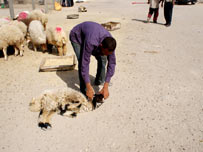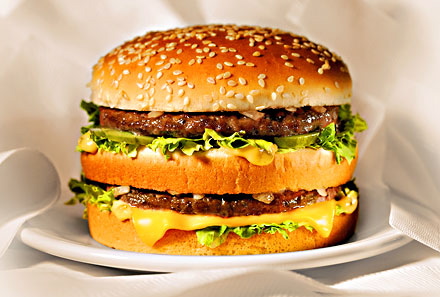Senator Chuck ‘Chuckles’ Schumer, a New York Democrat, sent a letter on Sunday to the U.S. Food and Drug Administration, urging the agency to investigate the issue of lead in those trendy reusable shopping bags – available for sale at most retailers.
I’m sure the Senate has other food-related matters it could be dealing with; I’m sure the FDA has some things to do; and I never understood  why a consumer had to buy a new plastic container to recycle or compost, or a lead-lined bag to go shopping.
why a consumer had to buy a new plastic container to recycle or compost, or a lead-lined bag to go shopping.
Everyone’s got priorities. And someone’s making a buck off it.
So as Chapman has written, the lead stuff isn’t much of a food safety priority.
Risk rankings are risky because inevitably, someone will get pissed.
But, as noted in the N.Y. Times on Sunday, “there is no evidence that these bags pose an immediate threat to the public, and none of the bags sold by New York City’s best-known grocery stores have been implicated.”
USA Today today reported that Publix Super Markets and Winn-Dixie are asking suppliers to make reusable bags with less lead, according to Schumer. Wegmans Food Market in September said it was halting sales of some bags.
“They say plastic bags are bad; now they say these are bad. What’s worse?” asked Jen Bluestein, who was walking out of Trader Joe’s on the Upper West Side with a reusable bag under her arm on Sunday.
“Green is a trend and people go with trends,” Ms. Bluestein said. “People get them as fashion statements and they have, like, 50 of them. I don’t think people know the real facts.”
Whose facts are real?
.jpg) Catherine Paykin, standing by the meat counter at Fairway said,
Catherine Paykin, standing by the meat counter at Fairway said,
“I wasn’t planning on throwing it out, so that’s a positive thing. As long as I use it and don’t throw it away, that will be my plan.”
Sure, but wash it now and then. And if buying meat, wrap it in plastic and throw the plastic bag out.

 contamination, but butchers defend their meat as healthy and tasty.
contamination, but butchers defend their meat as healthy and tasty. caused by contaminated meat bought in Spain.
caused by contaminated meat bought in Spain. Florida.
Florida. aware its not popular at all.”
aware its not popular at all.” David Bisek, associate brand manager for Cargill said in a statement.
David Bisek, associate brand manager for Cargill said in a statement..jpg) to reopen in two weeks provided they are cholera-free and the owners can show their meat comes from hygienic sources.
to reopen in two weeks provided they are cholera-free and the owners can show their meat comes from hygienic sources. 29 of the 80 meat products assessed were produced by unlicensed operators, adding,
29 of the 80 meat products assessed were produced by unlicensed operators, adding,.jpg) as shown).
as shown). This early-20th-century invention brought about a giant cultural shift: the reliance on a gadget—rather than instinct, or experience—to assess our meat. The thermometer was promoted to home cooks as a tool of scientific precision. It was also an instrument of relaxation, something that freed you from worrying about misjudging the meat: "A roast thermometer makes for carefree roasting," advised the 1959 edition of Fannie Farmer’s famous tome. By midcentury, temperature measurements were a common feature of cookbooks.
This early-20th-century invention brought about a giant cultural shift: the reliance on a gadget—rather than instinct, or experience—to assess our meat. The thermometer was promoted to home cooks as a tool of scientific precision. It was also an instrument of relaxation, something that freed you from worrying about misjudging the meat: "A roast thermometer makes for carefree roasting," advised the 1959 edition of Fannie Farmer’s famous tome. By midcentury, temperature measurements were a common feature of cookbooks..jpg) Valentine to the World of Food and the People Who Cook.)
Valentine to the World of Food and the People Who Cook.) Although Canada’s track record with ridiculous things said involving listeria is hard to match.
Although Canada’s track record with ridiculous things said involving listeria is hard to match.